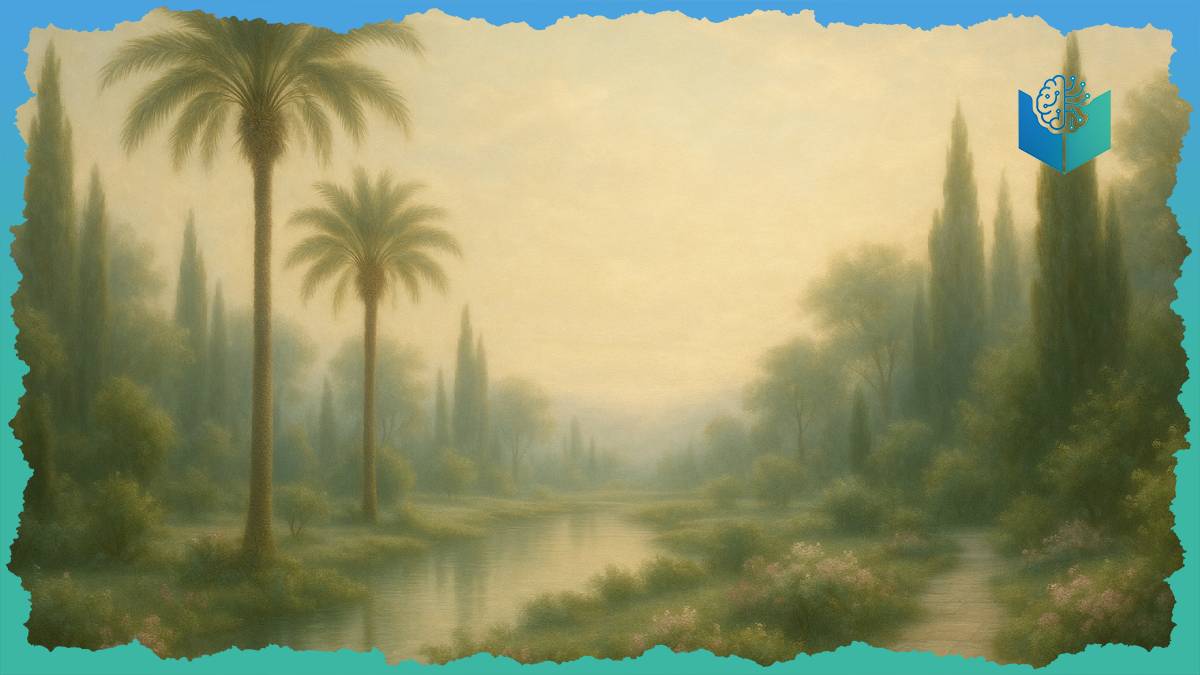Jannah (Paradise) in Islam

In Islam, Paradise, known as Jannah, is the ultimate reward for believers who live righteously and follow Allah’s guidance. The Quran beautifully illustrates the wonders and eternal pleasures of Jannah, giving the faithful a glimpse of the eternal life that awaits them. Understanding the descriptions of Jannah helps Muslims stay steadfast in their worship and ethical conduct.
The Concept of Paradise in Islam
Islam teaches that life in paradise is eternal, free from pain, sorrow, and the hardships of worldly life. The Quran states: “Indeed, those who have believed and done righteous deeds, they will have gardens beneath which rivers flow” (Quran 2:25). This promise motivates believers to follow the path of righteousness.
Believers are reminded that rewards for believers are not merely material but also spiritual, reflecting closeness to Allah and eternal contentment. Jannah is portrayed as a place of peace, joy, and fulfillment beyond human imagination.
The Gates of Jannah
Jannah is described as having multiple gates of Jannah, each reserved for those who excel in specific virtues. The Prophet Muhammad ﷺ said: “There are eight gates of Paradise, and one of them is called Ar-Rayyan, through which only those who observe fasting will enter” (Quranic teachings).
These gates symbolize the various ways believers can earn divine favor through prayer, charity, fasting, and other righteous deeds. Knowing about the gates of Jannah encourages Muslims to pursue excellence in all aspects of worship.
Rewards for Believers in Jannah
The rewards for believers in Jannah are vividly described in the Quran. They include flowing rivers, lush gardens, luxurious dwellings, and companionship with loved ones. “But those who feared their Lord will be led to Paradise in groups” (Quran 39:73).
These blessings are both tangible and spiritual, emphasizing not only physical pleasures but also peace of the heart, closeness to Allah, and freedom from worldly anxieties. The rewards are designed to reflect the ultimate justice and mercy of Allah.

Descriptions of Jannah: Gardens, Rivers, and Palaces
The Quran provides detailed descriptions of Jannah, portraying it as a lush and serene environment. Believers will experience flowing rivers of water, milk, honey, and wine, as well as shaded gardens and magnificent palaces. “Gardens of perpetual residence; they will enter them with whoever was righteous among their fathers, spouses, and descendants” (Quran 13:23).
These descriptions of Jannah serve both as spiritual encouragement and a reminder that the pleasures of the hereafter surpass any worldly delight. They inspire believers to act with patience, faith, and devotion.
Life in Paradise: Eternal Peace and Happiness
Life in paradise is free from suffering, worry, or fatigue. The Quran emphasizes that inhabitants will enjoy endless peace and satisfaction: “No fatigue will touch them therein, nor from it will they be removed” (Quran 15:48).
This eternal tranquility reflects the divine reward for patience, piety, and moral conduct. The joy of Jannah is not limited to material pleasures but includes emotional and spiritual fulfillment, strengthening the believer’s relationship with Allah.
The Role of Righteous Deeds
Access to Paradise in Islam is closely linked to performing righteous deeds and living a life in accordance with the Quran. Acts like prayer, charity, honesty, and patience are paths that lead to eternal reward. The Quran states: “Indeed, those who believe and do righteous deeds will have gardens of Paradise as a lodging” (Quran 18:107).
Believers are reminded that intention (niyyah) and sincerity are key; the value of actions is judged by Allah. This perspective encourages Muslims to prioritize spiritual growth alongside worldly responsibilities.
Companions in Jannah
One of the unique blessings described in the Quran is the companionship believers will enjoy in Paradise. Believers will be reunited with righteous family members and friends, sharing eternal happiness. “They will be reclining on thrones lined up, facing each other” (Quran 36:55).
This social aspect of life in paradise highlights that Jannah is a community of virtue, offering both comfort and shared joy. It is a reward for maintaining good character and moral conduct in worldly life.
Spiritual Rewards: Closeness to Allah
Beyond physical pleasures, the most profound reward in Jannah is spiritual, the chance to be close to Allah. The Quran states: “And We will have removed whatever is in their breasts of resentment, [so they will be] brothers, on thrones facing each other” (Quran 15:47).
This spiritual reward reflects ultimate peace, contentment, and purification, reminding believers that rewards for believers are deeply tied to inner purification and faith.

Lessons from Jannah for Muslims Today
Understanding Jannah inspires Muslims to live ethically and prioritize good deeds. The Quran presents it not just as a reward, but as a guiding principle for daily conduct. By reflecting on Quran verses about paradise, believers are reminded to cultivate patience, generosity, and moral uprightness.
Even small acts of kindness, honesty, and worship can contribute to earning the eternal rewards of Jannah. This reinforces the concept that Islam encourages consistent moral and spiritual development.
Symbolism of Jannah in the Quran
The Quranic imagery of gardens, rivers, and palaces symbolizes more than just physical pleasures. It represents eternal satisfaction, justice, and divine mercy. “They will have whatever they wish therein, and with Us is more” (Quran 50:35).
These symbols encourage believers to value spiritual wealth over temporary worldly gains, fostering a deeper appreciation for life in paradise and the ethical teachings of Islam.
Avoiding Sin to Attain Paradise
Islam emphasizes that avoiding sin and adhering to righteous behavior is essential to earn Paradise in Islam. The Quran reminds: “And those who avoid the major sins and immoralities, and when they are angry, they forgive” (Quran 42:37).
This guidance highlights that moral vigilance and self-discipline are rewarded, reinforcing the connection between daily conduct and ultimate spiritual success.
The Gates of Jannah and Their Significance
The multiple gates of Jannah signify that Allah values and rewards different virtues. Believers who excel in particular deeds, such as prayer, charity, or fasting, will have specific gates through which they enter. “And those who are conscious of Allah He will make for them a way out and provide for them from where they do not expect” (Quran 65:2-3).
This reminds Muslims that ethical guidance in Islam is diverse, allowing each individual to strive according to their unique strengths and circumstances.

The Role of Faith in Achieving Paradise
Faith is the foundation for entering Paradise in Islam. Without sincere belief in Allah and His guidance, righteous deeds alone are insufficient. The Quran emphasizes: “Indeed, those who have believed and done righteous deeds will have the Gardens of Paradise as lodging” (Quran 2:82).
Belief provides the spiritual framework that allows actions to be meaningful and rewarded, reinforcing that about Islam values both intention and conduct.
Eternal Companions: Rewards Beyond Material Pleasures
In Jannah, believers will also enjoy companionship with the prophets, angels, and righteous people. The Quran describes these interactions as joyous and fulfilling, offering lessons on virtue and divine favor. “And those who believe will be seated with the righteous companions” (Quran 18:107).
This dimension of reward highlights that descriptions of Jannah encompass social, emotional, and spiritual satisfaction, not merely material luxury.
Reflection Through Quranic Stories
The Quran often uses narratives to illustrate the rewards of the righteous. Quranic stories of past prophets and their communities offer examples of patience, obedience, and reliance on Allah. These stories serve as moral lessons and encouragement for contemporary believers to follow the ethical guidance laid out in Islam.
Preparing for Life in Paradise
Muslims are encouraged to apply the lessons from the descriptions of Jannah in their daily lives. Acts like honesty, charity, regular prayer, and moral integrity are steps toward earning the eternal rewards promised in the Quran.
The Quran reminds: “And whoever does righteous deeds, whether male or female, while being a believer, they will enter Paradise and will not be wronged” (Quran 4:124). Daily efforts, guided by Quran guidance, ensure believers are spiritually prepared for Jannah.
Conclusion: The Ultimate Reward
In conclusion, Paradise in Islam represents the ultimate reward for faith, moral conduct, and devotion. Its descriptions of Jannah, gates of Jannah, and eternal pleasures emphasize the mercy and justice of Allah. Believers are encouraged to act righteously, reflecting on rewards for believers in their daily lives.
By studying Quranic stories, following ethical guidance, and maintaining sincere faith, Muslims can strive toward a life that earns the eternal blessings of Paradise. Free resources like ayaat.ai allow everyone to engage deeply with the Quran, understand life in paradise, and integrate its lessons into everyday conduct. The promise of Jannah serves not only as a reward but as a guide, shaping ethical, spiritual, and social behavior for generations.
Q&A
Why is paradise important in Islam?
Paradise is important in Islam because it represents the ultimate reward for believers who live righteously and follow Allah’s guidance. It motivates Muslims to uphold faith and moral conduct in this life.
Are Paradise and Jannah the same?
Yes, Paradise and Jannah refer to the same concept in Islam, describing the eternal abode of bliss and reward promised to the faithful.
What are the 7 levels of paradise in Islam?
The seven levels of Paradise in Islam represent different ranks of reward, with higher levels granted to those with greater faith, piety, and good deeds.





